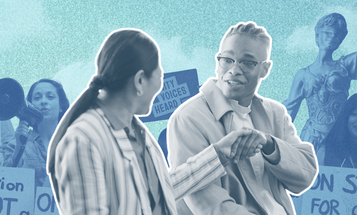
Civil rights lawsuits alone won’t give us the America we want
Besides, focusing narrowly on individual instances of discrimination often leaves in place workplace policies and the power structures that perpetuate systemic discrimination against Black and brown communities in particular.
The task of assuring an equitable, inclusive democracy now requires going beyond litigation and court rulings. Litigation — dependent on a federal judiciary increasingly stacked with Trump-appointed judges and bound by decades-old statutes — will simply not be enough to make civil rights protections real for the people who need them most. Besides, focusing narrowly on individual instances of discrimination often leaves in place workplace policies and the power structures that perpetuate systemic discrimination against Black and brown communities in particular. [...]
If progressives win big in the November election, there may be an opportunity to push forward a new civil rights movement that continues the legacy of the 1960s. Anything less will leave Americans at the mercy of a constricted, litigation model of rights — one that depends too heavily on a fickle and skeptical judiciary.



